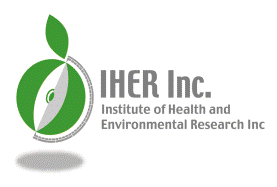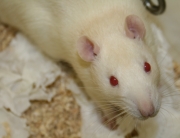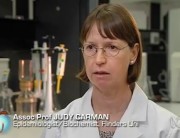The Institute of Health and Environmental Research Inc. (IHER) has criticised the decision by the OGTR to allow the commercial release of Monsanto’s Roundup Ready canola.
Author: Dr Judy Carman. Date 12/06/2008
Source: www.iher.org.au
The Institute of Health and Environmental Research Inc. (IHER) has criticised the decision by the OGTR to allow the commercial release of Monsanto’s Roundup Ready canola.
“The environmental and health and safety problems of GM crops have not been adequately addressed”, said Dr Judy Carman, a Director of the Institute. “Until this happens, the commercial release of GM crops is just too risky.”
“Based on our previous experience of the OGTR, we have no confidence in their scientific objectivity. They have simply ignored our past scientifically-based concerns of their draft plans”, said Dr Carman.
“The OGTR is supposed to assess the impacts of GM crops on the environment and human health and safety. Assessing the complexity of these impacts requires considerable input from experts in different areas. Yet when such experts provide input, the OGTR doesn’t appear to listen”, Dr Carman said.
The Public Health Association of Australia has also severely criticised the safety assessments of GM foods. It has found that when this canola was fed to animals, it showed clear adverse effects. However, rather than investigating further, the results were attributed to a substance that may be innocent, and the canola declared to be safe.
A recent paper by Mark Trantor, Lecturer in Law at the University of Queensland, describes how the OGTR legislation has been written to favour the introduction of gene technology.
A recent document by the Federal Environment Agency of Austria has stated that GM crops are “very often declared to be safe just by assumption based reasoning. Furthermore, these assumptions are sometimes not easily or not at all verifiable.” Yet this is largely how the OGTR determines the safety of GM crops.
The Institute of Health and Environmental Research Inc. (IHER) has an interest in GM organisms, particularly those destined for food. Its directors hold the following degrees: ordinary degrees in Medicine, Science and Agriculture, Honours Degrees in Agricultural Science and Chemistry, a Master of Public Health, and PhDs in Plant Genetics and Medicine. The Directors have training and expertise in plant science, agriculture, medicine, chemistry, biochemistry, nutrition, epidemiology and biostatistics.



































